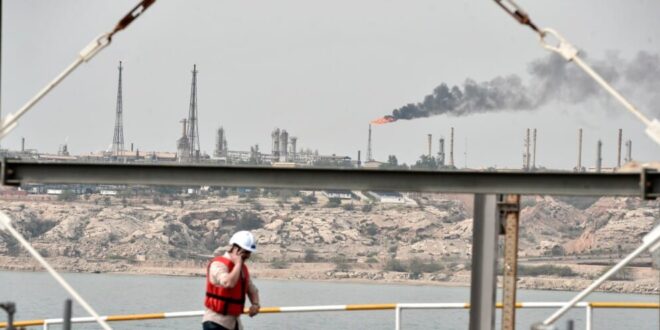Earlier this month, the Energy Information Agency (EIA) published its first report about Iran’s petroleum exports as mandated by the Stop Harboring Iranian Petroleum(SHIP) Act enacted earlier this year. The EIA reported that Iran sold $144 billion in the first three years of the Biden administration, $100 billion more than what Tehran exported in the last two years of the Trump administration when the oil sanctions were in effect.
The SHIP Act required the EIA to provide data on Iran’s total petroleum export volume and revenue and a breakdown of how Iran sold to China and other countries and at what price. Finally, it sought an analysis of Iran’s labeling practices of exported petroleum and petroleum products and a description of companies, ships, and ports involved in the export and sale of Iranian petroleum and petroleum products.
The report confirmed what critics of current U.S. policy have been saying: During the Biden administration, Iran’s petroleum exports have increased in value and volume. The report found that between 2021 and 2023, Tehran sold $144 billion of petroleum and petroleum products. This contrasts sharply with the “Maximum Pressure” period, during which Iran’s oil exports declined to just $16 billion in 2020. The trend has been both broad and consistent. Crude oil and condensate exports more than tripled between 2020 and 2023 to more than 1.59 million barrels per day. Iranian petroleum product exports increased more than 50 percent over the same period.
The Biden administration argues that it has been enforcing the sanctions, but the EIA suggests the opposite. The administration might have been worried about the effect on the price of oil of fully enforcing the sanctions. However, other producers had spare capacity to offset the rise in the volume of Iranian exports had the administration enforced sanctions. Iran currently exports around 1.7 million barrels per day (mbpd) of crude oil. OPEC’s effective spare capacity — excluding Iran, Russia, and Libya — is currently above 5 mbpd.
The report does not answer every question the SHIP Act requires. It omits discussion of labeling practices of exported petroleum and companies involved in selling Iran’s petroleum and petroleum products, saying it neither collects sufficient data nor has the legislative authority to do so and so fills some gaps with third party data to respond to other questions. The report also fails to identify the Chinese refineries that process most Iranian oil.
Future EIA reports could be more robust, better inform policy, and reflect reality if they also incorporate tanker traffic to estimate Tehran’s exports rather than simply subtracting estimates of domestic consumption from Iran’s production. The EIA also fails to consider the discount that Tehran offers to its customers, potentially leading the report to overestimate Tehran’s export revenue.
Nevertheless, the SHIP Act-mandated EIA report can inform policymakers should they seek to tighten enforcement. The U.S. government could designate tankers, ships, and holding companies the report identifies and Chinese refineries yet unidentified. Such designations should include board members, C-level executives, and major shareholders.
The United States has yet to designate port operators involved in exports of Iranian petroleum and petroleum products. The report identifies ports in 28 countries, including China, Eritrea, Turkey, and Venezuela. Targeting the port operators increases the pressure on the network that illicitly exports Iranian oil and its derivatives.
While the SHIP Act did not require the U.S. government to identify the banks and insurance companies facilitating these transactions, their identification and targeting are likewise crucial to curb Tehran’s illicit oil and oil product exports.
U.S. policy is strongest when calibrated to reality. Here, the EIA report is a step in the right direction. While the decision to leverage sanctions and dry up revenue the Iranian regime derives from oil sales and the use of oil for malign purposes is a political one, the EIA report ensures that Congress can base its oversight more on fact rather than political spin.
 Eurasia Press & News
Eurasia Press & News




